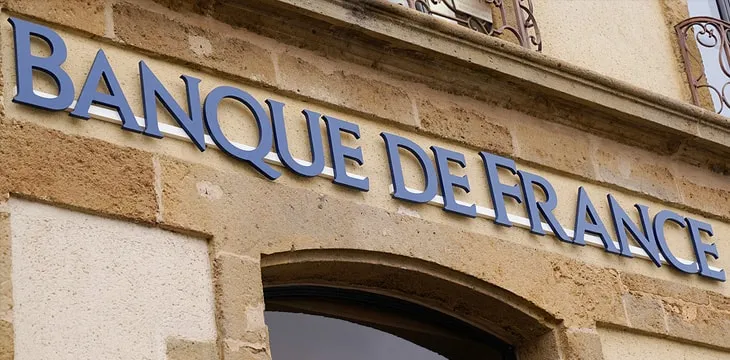|
Getting your Trinity Audio player ready...
|
The Bank of France has moved from conceptual and academic central bank digital currency experiments to trials in the field, a top executive has confirmed. The central bank has successfully completed a pilot trial with one of the largest banks and has planned eight more in coming months.
Banque du France first deputy governor Denis Beau revealed the bank’s CBDC progress at the Paris Blockchair Week Summit 2020. Beau told the audience that the bank has been conducting trials on the feasibility of a CBDC, all while working to preserve the anchor role of central bank money.
“The way we experiment with CBDCs for wholesale transactions perfectly illustrates our choice to move from conceptual and academic considerations, to experiments in the field, hand in hand with market players, using a pragmatic, trial and error way of working.”
Banque du France is seeking to determine how a CBDC can improve the fluidity and efficiency of payment and settlement systems.
Beau said that in May, the bank conducted its first experiment with a CBDC, working with France’s third-largest bank, the Société Générale. The experiment allowed the central bank to test three steps in a digital transaction—the tokenization of a security, the digital representation on a blockchain and the settlement of a transaction on the blockchain.
Banque du France has lined up eight more experiments on the CBDC, according to Beau. These experiments will give the bank insight into fundamentals such as “the methods of exchanging financial instruments for CBDCs, the improvement of the conditions for executing cross-border payments or new ways of making CBDCs available to financial sector players.”
These experiments will allow the bank to assess whether it needs to change its regulatory framework for digital payments.
Aside from its local trials, the central bank has also been actively participating in CBDC experiments with the European Commercial Bank. As CoinGeek reported, the ECB president Christine Lagarde predicted the bank would launch a digital euro in 2.4 years.
Beau revealed that the ECB has requested central banks in the Euro region to be ready to issue a CBDC “should circumstances require.” This would “ensure that central bank money is accessible to the general public and to preserve their freedom of choice of means of payment and their confidence in our currency.”
While the European region strives to find a consensus on a regional CBDC, China is making major strides in its digital yuan trials. In its most recent trial, the PBoC debuted tap payments that use near-field technology to enable payments without an internet connection.
To learn more about central bank digital currencies and some of the design decisions that need to be considered when creating and launching it, read nChain’s CBDC playbook.
See also: CoinGeek Live panel on The Future of Banking, Financial Products & Blockchain

 09-11-2025
09-11-2025 





